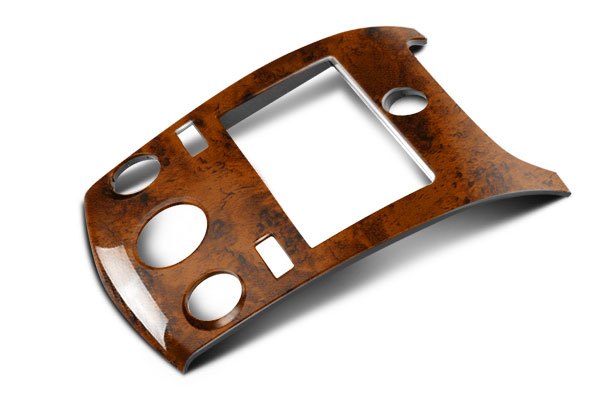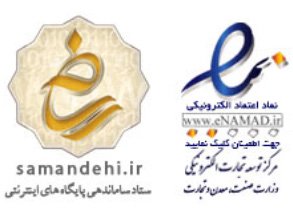دسته بندی ها
رینگ لوکس سایز 17 هیوندای توسان LIMITED 2008 | قیمت رینگ لوکس سایز 17 هیوندای توسان LIMITED 2008 | فروش رینگ لوکس سایز 17 هیوندای توسان LIMITED 2008 | انواع رینگ لوکس سایز 17 هیوندای توسان LIMITED 2008 | خرید رینگ لوکس سایز 17 هیوندای توسان LIMITED 2008 آلومینیومی فورج شده چرخ های یک تکه ای هستند که از یک بلوک فلزی با آهنگری گرم، ریسندگی گرم یا سرد و عملیات ماشینکاری تشکیل می شوند. رینگ لوکس هیوندای توسان LIMITED 2008 | قیمت رینگ لوکس هیوندای توسان LIMITED 2008 | فروش رینگ لوکس هیوندای توسان LIMITED 2008 | انواع رینگ لوکس هیوندای توسان LIMITED 2008 فرآیند آهنگری انعطاف پذیری را در طراحی دیسک سبک، هیوندای توسان LIMITED 2008 | لوازم یدکی هیوندای توسان LIMITED 2008 | لوازم هیوندای توسان LIMITED 2008 | قطعات هیوندای توسان LIMITED 2008 | قطعات یدکی هیوندای توسان LIMITED 2008 | لوازم اسپرت هیوندای توسان LIMITED 2008 مشابه چرخ های ریخته گری می دهد.آلیاژهای استاندارد مورد استفاده، آلیاژهای فرفورژه قابل عملیات حرارتی هستند: فرآیند تولید حداکثر اتاق کالیپر ترمز را در ترکیب با تلورانس های ابعادی کم، وزن کم و استحکام و چقرمگی بالا امکان پذیر می کندآهنگری ساختار دانه را در امتداد جهت جریان مواد تراز می کند و در نتیجه امکان بهره برداری از خواص استحکام و چقرمگی آلیاژ را به حداکثر می دهد. در نتیجه، چرخهای فورج شده در مقابل استفاده نادرست، آسیب بیشتری را تحمل میکنند. در رابطه با ریخته گری، مواد آهنگری به دلیل عدم وجود منافذ و به دلیل ریزساختار ریز و همگن، مقاومت خستگی مشخصی بالاتری از خود نشان می دهند. در حالی که چرخهای ریختهگری مطابق با مشخصات بار و استقامت چرخهای آهنگری عمل میکنند، چرخهای دومی نسبت به اضافه بار تحمل بیشتری دارند، همانطور که ممکن است در اتومبیلهای اسپورت تجربه شود. علاوه بر این، ریزساختار متراکم فرفورژه اجازه ماشینکاری الماس براق بالا و پرداخت سطوح هاب تزئینی را می دهد. مفهوم آهنگری چرخ سنتی شامل چندین عملیات آهنگری، ماشینکاری خشن، شکافتن، چرخش جریان، عملیات حرارتی، ماشینکاری نهایی و چندین مرحله تکمیل اضافی بسته به نیازهای طراحی بود. در نتیجه، یک ظاهر طراحی شده بر وزن غالب است و هزینه ها قابل توجه است. از سوی دیگر، اگر وزن کم و هزینه کم اهداف اصلی هستند، فناوریهای ساخت باید محدودیتهای ظاهری را تعیین کنند. به دنبال این استدلال به شدت، یک مفهوم تولید "چرخ فورج سبک" (Otto-Fuchs Metallwerke) توسعه یافت و این چرخ ها توسط آئودی، بی ام و، دایملر کرایسلر، جگوار و فولکس واگن استفاده می شود. از سال 1995 چندین میلیون دستگاه از این چرخ ها با مراحل زیر تولید شده است: آهنگری 1 مرحله ای، سکه زنی، سوراخ کردن چرخش جریان (چرخش داغ) محلول عملیات حرارتی و پیری ماشینکاری، حفاری، سوراخ کردن (تراشکاری الماس اختیاری) حکاکی و نقاشی فرآیند ورق فلزی 2 تکه یک نوار از ورق فلزی که به طول مورد نیاز بریده شده است، با استفاده از دستگاه جوش فشاری به شکل گرد در می آید که انتهای آن به هم جوش داده می شود. پس از حذف فلاش جوش، رینگ ها در یک سری عملیات نورد شکل می گیرند. شبستان چرخ در چند مرحله بر روی پرس انتقال با استفاده از فرآیند کشش عمیق یا مهر زدن بر روی دستگاه آهنگری شکل می گیرد. اتصال لبه به شبستان با استفاده از فرآیند MIG پالسی انجام می شود. پس از اتصال، چرخ ها تحت درمان سطحی قرار می گیرند، یعنی پیش تصفیه برای تولید یک پوشش تبدیلی و به دنبال آن یک پوشش الکترودیپ مواد آلیاژهای مورد استفاده باید طیف وسیعی از الزامات متناقض را برآورده کنند: خواص خوب ریخته گری قالب فلزی (قابلیت ریخته گری، حساسیت به پارگی گرم و ویژگی های انقباض) توانایی مقاومت در برابر ضربه فیزیکی (ازدیاد طول و قدرت ضربه)مقاومت در برابر خوردگی (اتمسفر نرمال و شور) مقاومت در برابر خستگی
........................................................................................................................................................
2008 hyundai tucson limited 17 inch luxury wheels | 2008 hyundai tucson limited 17 inch luxury wheels sale | 2008 hyundai tucson limited 17 inch luxury wheels buy | 2008 hyundai tucson limited 17 inch luxury wheels price Forged aluminum are one-piece wheels that consist of a metal block with hot forging, hot or cold spinning and machining operations. 2008 hyundai tucson limited | 2008 hyundai tucson limited parts | 2008 hyundai tucson limited accessory | 2008 hyundai tucson limited parts sale | 2008 hyundai tucson limited parts buy | 2008 hyundai tucson limited parts price The forging process gives flexibility in the design of light discs, casting wheels. The standard alloys used are wrought iron alloys that can be heat treated: the production process of the maximum brake caliper chamber in combination with low dimensional tolerances, low weight And high strength and toughness is possible. The forging aligns the grain structure along the direction of material flow and thus allows the use of the strength and toughness properties of the alloy to the maximum. As a result, forged cycles suffer more damage from misuse. In the case of casting, forging materials show a certain higher fatigue resistance due to the lack of pores and due to the fine and homogeneous microstructure. While casting cycles operate according to the load and endurance characteristics of forging cycles, the latter cycles are more tolerant of overload, as may be experienced in sports cars. In addition, the dense wrought microstructure allows high gloss diamond machining and polishing of decorative hub surfaces. The concept of traditional wheel forging included several forging operations, rough machining, splitting, flow rotation, heat treatment, final machining, and several additional completion steps depending on the design needs. As a result, styling dominates the weight and costs are significant. On the other hand, if low weight and low cost are the main goals, manufacturing technologies must set physical limitations. Following this strong argument, a production concept of "Otto-Fuchs Metallwerke" was developed and used by Audi, BMW, DaimlerChrysler, Jaguar and Volkswagen. Since 1995, several million units of these wheels have been produced with the following steps: 1-stage forging, coinage, perforation (hot spin), heat treatment solution and aging, machining, drilling, drilling (optional diamond turning) engraving Painting of a 2-Piece Sheet Metal Process A strip of sheet metal cut to the required length is rounded using a pressure welding machine, the ends of which are welded together. After removing the welding flash, the rims are formed in a series of rolling operations. The wheel shaft is formed in several steps on the transfer press using a deep pulling process or stamping on the forging machine. The edge connection to the nave is done using the pulse MIG process. After joining, the wheels are surface treated, ie pre-treated to produce a conversion coating followed by an electrode coating. The alloy materials used must meet a wide range of conflicting requirements: Good casting properties Casting, hot tear sensitivity and shrinkage characteristics) Ability to withstand physical impact (increase in length and impact strength) Corrosion resistance (normal and salty atmosphere) Fat resistance
https://www.khodroid.com/2008-hyundai-tucson-limited-for-17-inch-luxury-wheels
مارا دنبال کنید
Copyright © 2016-2020 KHODROID.com. All rights reserved.
طراحی سایت توسط نونگار پردازش











